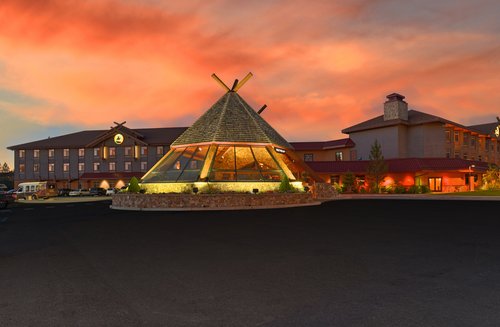
The Northwest Intertribal Food Sovereignty Summit Wraps Up at Coeur d’Alene Casino Hotel
By Sarah Clendenon • March 11, 2024The Northwest Intertribal Food Sovereignty Summit took place over the last four days at the Coeur d’Alene Casino Hotel in Worley.
The event was hosted by the Coeur d’Alene Tribe with organizing partners including the Nez Perce Tribe, the University of Idaho Extension Coeur d’Alene Office, University of Idaho Extension Nez Perce Office, Arrowleaf Consulting, Tahoma Peak Solutions, and Wisteqn’eemit.
The description explained the in-person gathering was,
“a special event bringing together Indigenous communities to celebrate and promote food sovereignty.”
The webpage described the goals and objectives the Tribes and sponsors envisioned for the Summit,
“The first annual Northwest Intertribal Food Sovereignty Summit will bring together Tribal community leaders, youth, elders, Tribal food enterprises, Native food entrepreneurs, Native food producers, traditional food champions, funders, government agencies, and others to discuss, share and learn about Tribal food economies, small business development, climate resilience, and youth engagement in food systems and tradition. Youth will have a unique opportunity to learn from experts in the field and get hands-on skill-building experiences through workshops and presentations.”
There were many breakout sessions, conversations, literature, and displays which illustrated the focus on the Tribes’ sacred “First Foods.” These are the staple foods in the diets of the Tribes indigenous to the northwest.
This article describes the importance of these First Foods and their connection to the treaties made with the U.S. government 170 years ago:
“It was promised we would have access to these things,” said Valerie Segrest, a Muckleshoot Indian Tribe member and Native foods educator. Under the treaties of Medicine Creek and Point Elliott, the Muckleshoot forever reserved hunting, gathering and fishing rights beyond their reservation at Auburn.
“It was always based on food,” she said of the treaties. “That is what we ceded all our lands for. It was important to us because in our creation stories, our foods teach us who we are. If we didn’t have access to our foods, we would not be a Native person.”
“These are the foods with which our cultures developed over thousands of years.”
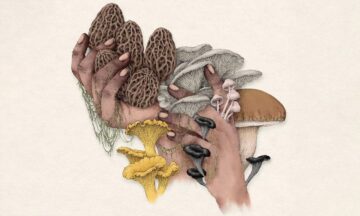
Image courtesy of Tahoma Peak Solutions, https://www.tahomapeak.com/
Shannon Wheeler, Chairman of the Nez Perce Tribe, commented in the article,
“People have to understand why we reserved the rights we did, why our people did that….
“It is because of the unwritten laws we have, our obligation to the land and its inhabitants, and our obligation to the First Foods and how we live with the land and interact with the land and treat the land. It is our oldest law. Before the treaty. It is what the treaty was meant to capture.”
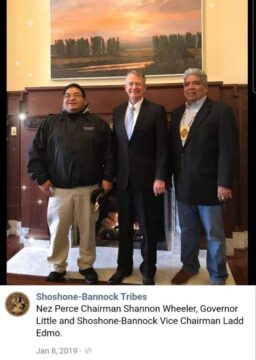
This source describes the First Foods ceremony and the deep connection, obligation, and duty the tribes feel to the animals, the fish, the plants, and the land,
“The First Foods ceremony is an annual affair that’s part thanksgiving, part new beginnings. The four Columbia River fishing tribes — members of the the Yakama, Warm Springs, Umatilla and Nez Perce — perform the ceremony each spring, when salmon start heading up the river. For them, it’s imperative to honor the foods that made tribal life possible for the past 10,000 years. After the ceremony, the commercial fishing season can start.
The first foods story is tied to the tribes’ creation and is best heard from one of the tribal elders who repeat it each year. Basically, it goes like this: The salmon were the first animals to volunteer themselves as sacrifice for the tribal people to eat. Then came the game — elk, deer and so on. Then the roots and berries — camas root, wapato, etc. In exchange, the tribes must steward their continued existence.”
Some of the literature shared at the summit included topics such as Columbia River fishing history and traditions, “climate smart gardening,” recipes based on the First Foods, climate change adaptation projects, the Lapwai Food Trail, and conservation.
Video clips from the event were shared on the Tahoma Peak Solutions Instagram page here.
Tags: Arrowleaf Consulting, Chairman of the Nez Perce Tribe, Climate Change, Coeur d'Alene Casino Hotel, Coeur d'Alene Tribe, Columbia River fishing, Dam Breaching, Dams, First Foods, Indigenous People., Muckleshoot Indian Tribe, Nez Perce Tribe, Northwest Intertribal Food Sovereignty Summit, Shannon Wheeler, Tahoma Peak Solutions, University of Idaho Extension Coeur d'Alene Office, University of Idaho Extension Nez Perce Office, Wisteqn'eemit
8 thoughts on “The Northwest Intertribal Food Sovereignty Summit Wraps Up at Coeur d’Alene Casino Hotel”
Comments are closed.
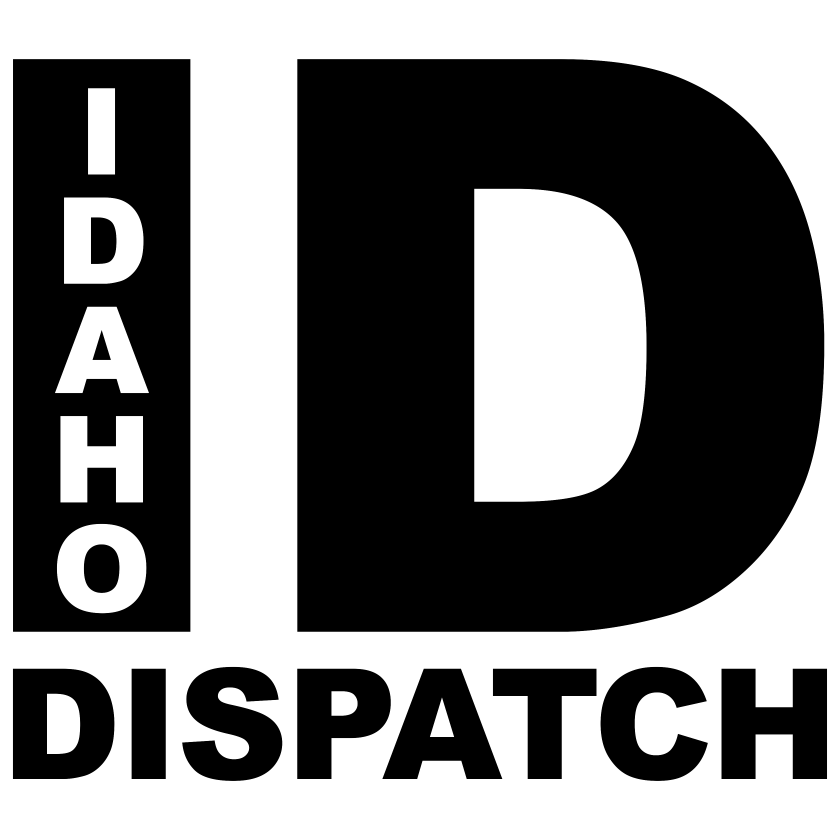
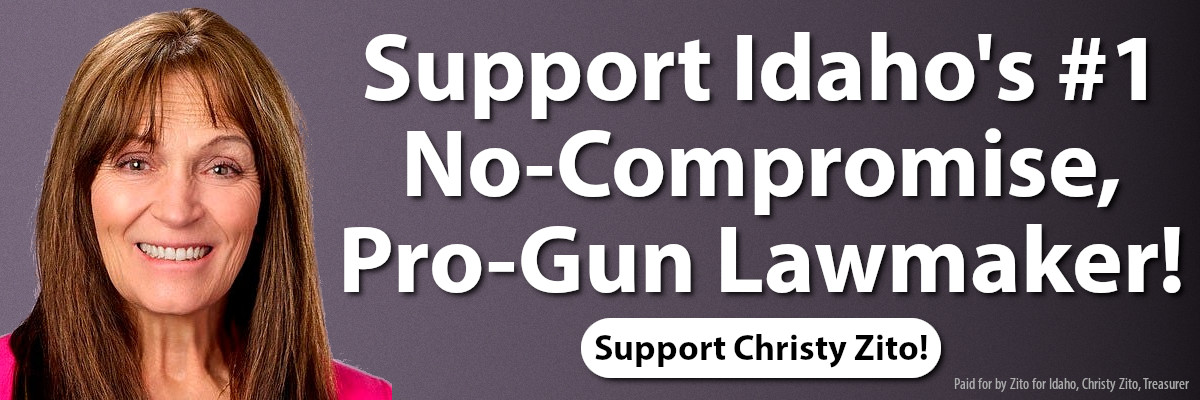






It is obvious what this is really all about: breaching the dams, trespassing on private property, and a general hatred toward the successful food production brought to America by the Europeans. “Food sovereignty” will result in massive starvation, just as it did for the indigenous tribes before the arrival of the “evil” European.
Our politicians are doing quite the job at destroying small farms and controlling the food producers.
When will we learn that any deal with the government is a deal for the government, not we the people? Government has been enslaving inch by inch we the people with every subsidy, with every regulatory arm, and every tax! The sovereignty of we the people is eviscerated near the point of absence. We the people must demand our constitutional rights and sovereignty be returned now.
The problem is we are a nation of dumbed down Tv watchers that like the German Jews in Hitler’s Germany think it will happen to the other guy and not me.
We must preserve the damns. What a mistake was made in the days of those treaties involving the western states… the beginning of the crumbling foundation of the newly formed UNITED States and formation of the welfare state.
All excellent comments. If I was aboriginal, I would be promoting self sustainment for local tribes and shunning any cooperation with godvernment
It’s possible that Tribal Leaders, like Idaho’s Politicians, can be swayed by money, power, ignorance and greed.